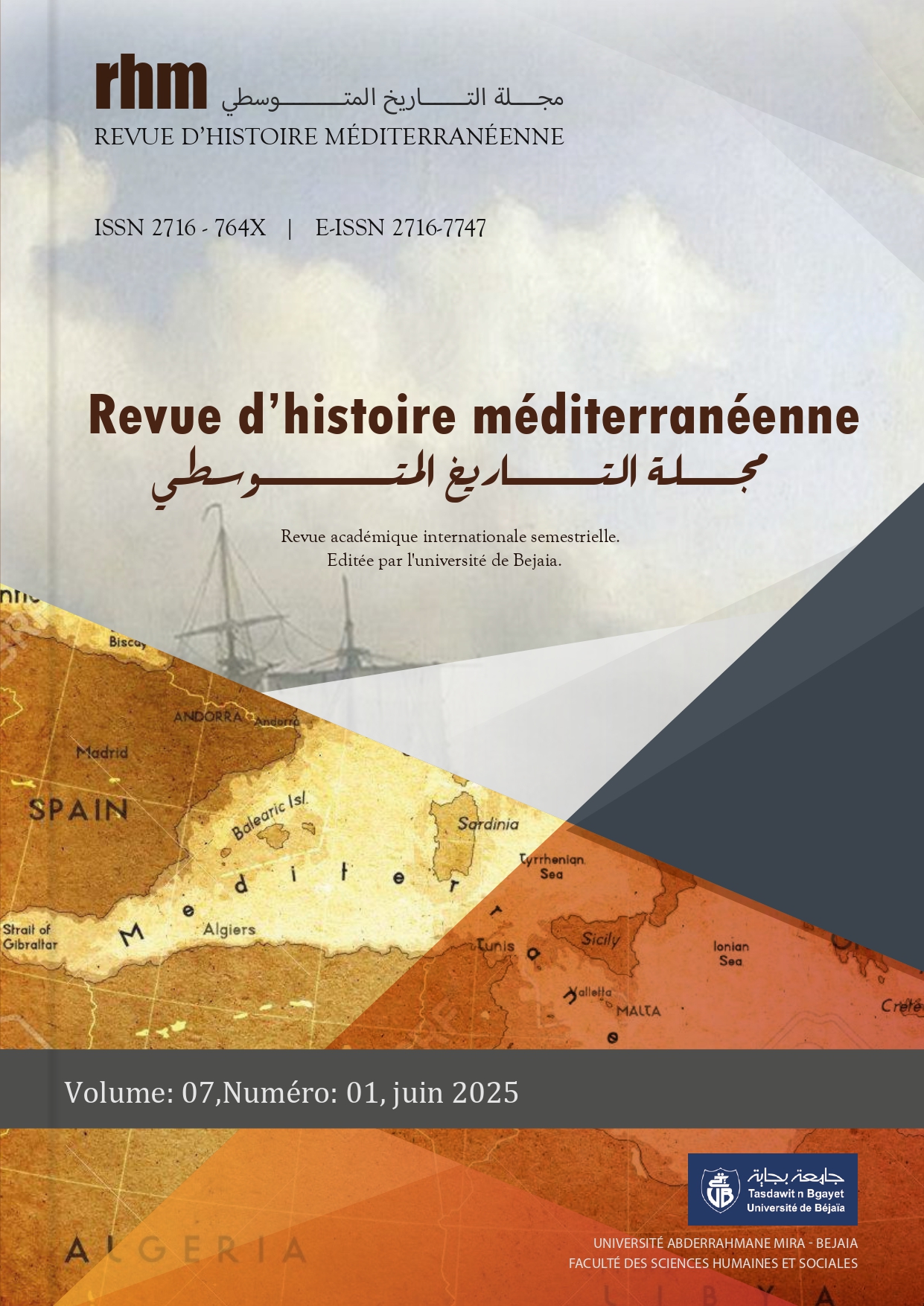دور الجيوش النوميدية في الحرب البونية الثانية (218-202 ق.م)
The Role of the Numidian Armies in the Second Punic War (218-202 BC)
Résumé
تناولت هذه الدراسة الجيوش النوميدية ودورها في الحرب البونية الثانية الممتدة من 218 الى 202 ق. م، والتي دارت بين القوات القرطاجية بقيادة حنبعل بن هاملكار برقة، والقوات الرومانية بقيادة بوبليوس كورنيليوس سكيبيو(Publius Cornelius Scipio) ، بهدف ضرب القرطاجيين في عقر دارهم وإزاحتهم من منطقة الحوض الغربي للبحر الأبيض التوسط التي كانت محل أنظار الامبراطورية الرومانية ، كما نسعى إلى الكشف عن كيفية استمالة الرومان والقرطاجيين الطرف النوميدي في هذا الصراع، لينضم سيفاكس الى الجانب القرطاجي، ويتحالف ماسينيسا بجيشه مع الرومان، ويخوض معهم هذه الحرب، وينقلب بذلك على القرطاجيين بعد أن حارب الى جانبهم في اسبانيا، ومن هنا تنبثق اشكاليتنا حول كيفية مساهمة الجيوش النوميدية، ودورها في تغيير مسار الحرب البونية الثانية؟ وتركيبته وخصائصه؟
اعتمدنا في هذه الدراسة على المنهج التاريخي الوصفي في نقل أحداث هذه الحرب وتفاصيلها، والتحليلي، في استعراض وتحليل أسباب مشاركة النوميد ودور جيوشهم في هذه الحرب، علاوة الى تناولنا فيها الوضع العام لمملكة نوميديا، والأساليب التي اعتمدها القائد الروماني سكيبيو لإقحام ماسينيسا -ملك نوميديا الشرقية-وجيوشه في هذا الصراع، ودوافع انحياز سيفاكس -ملك نوميديا الغربية-الى جانب قرطاج، كما سلطنا الضوء على تركيبة وخصائص جيش النوميد وجاهزيته ودوره أثناء الحرب وبعدها. ولمعالجة هذا الموضوع اعتمدنا على مصادر أولية للمؤرخين اللاتين على رأسهم نص بوليبيوس الذي يعتبر مصدرا أساسيا، ولكن يعاب عليه انحيازه الكامل لروما في التبريرات التي قدمها لأعمال التخربية الشنيعة مؤيدا عمل الإبادة لكل عنصر يظهر العداء للرومان، بينما كان تيتوس ليفيوس (Titus Livius)، في كتابه "التاريخ الروماني" أكثر تفاصيل بنقله معلومات مهمة عن الحروب البونية، أما عن كتابات المحدثين فعدنا الى ستيفان قزال (Stephane Gsell) في كتابه الموسوم "تاريخ شمال افريقيا القديم"، الذي تناول فيه حيثيات الحروب البونية. كما استعنا بالأعمال الأكاديمية وأهمها رسالتي دكتوراه الباحثتين باحمان حسيبة، ونادية يفصح، المعنونتين كالتالي (الخطط العسكرية للمقومات النوميدية، والمظاهر الحضارية في نوميديا، اللتين قدمت لنا الأولى معلومات حول الجانب العسكري ومقاومة النوميد للغزاة، بينما الثانية استفدنا منها في الجانب السياسي خاصة.
توصلنا في نتائج هذه الدراسة الى أن القرطاجيين والرومانيين ساهموا كثيرا في اذكاء نار الفتنة بين النوميديين الشرقيين بزعامة ماسينيسا، والغربيين بزعامة سيفاكس، تحولت الى صراع دموي بعد تدخل هذه التأثيرات الخارجية، لتي عملت على توسيع شق الخلاف بين الملوك المحليين، خدمة لأهدافهم ومصالحهم في شمال افريقيا، وقد تبين مما جاء في بعض المصادر الكلاسيكية أن الجيوش النوميدية كان لها دورا مهما في حرب حنبعل، إن لم نقل حاسما خاصة في مرحلتها الأخيرة، وكان لجنود ماسينيسا الفضل في تغيير مجرى الحرب لصالح الرومان وتحقيق انتصارات في معارك السهول الكبرى وكرطا وزاما الفاصلة، وفي الأخير اعتمدت الجيوش النوميدية بعد الحروب البونية -في عهدي الملكين يوغرطة ويوبا الأول - على استراتيجيات وتكتيكات حرب جديدة ضد العدو الروماني، مكنتهم من الانتصار والتفوق، لولا لجوء هؤلاء الى أسلوب الاغراءات والخيانة الذي اشتهروا به.











